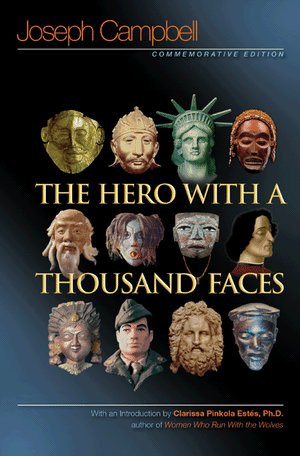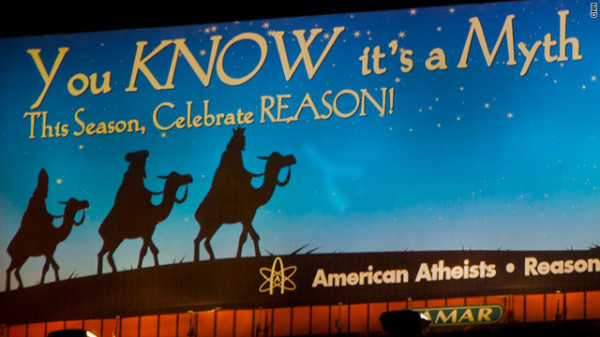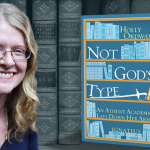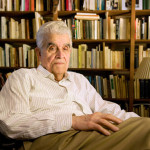Are the Gospels a Myth?
by Fr. Dwight Longenecker
Filed under The Bible
One of the most common pronouncements by the atheists is that “Christianity is a myth.” In one sense they are correct. The gospel story does operate like a myth. However, most of the atheists making this comment do not seem to have a very knowledgeable understanding of myth and how it works. They don’t seem to understand the richness and the ambiguity of the term “myth”.
When they say “myth” what they mean is “fairy tale”. Even the term “fairy tale” has far deeper and richer levels of meaning than they are aware of. They use the term “myth” to indicate a funny story about gods and goddesses that simple people made up long ago. When they say “myth” and mean “fairy tale” what they really mean is that “this is a made up pretend story which has no basis in history or scientific veracity.” When they say “myth” they mean “this is not a story like they read in the newspaper or in the history books.”
Indeed, this is one definition of the word “myth”. The most popular usage of “myth” is that it is a fabricated tale. It is a fiction. At worst it is simply a lie which gullible people believe and manipulative people promulgate. For those who are only interested in facts, this means that it is worthless, or at best, interesting as a folk tale or a fable might be interesting.
 The term “myth” however, has far deeper levels of understanding. The “mythologist” Joseph Campbell in his seminal work, The Hero With a Thousand Faces shows how one particular story (which he calls the mono-myth) recurs in many different ways in virtually every society. The mono-myth is the story of how a hero leaves his ordinary world and sets out on an adventure to overcome great evil and claim a great prize before returning home to save his people. Campbell recognizes that “myth” in this sense is a story that connects individuals and groups with the deepest themes within the collective mind, and that through the re-enactment of myth and the re-telling of stories individuals identify subconsciously with the hero and go on the quest with him.
The term “myth” however, has far deeper levels of understanding. The “mythologist” Joseph Campbell in his seminal work, The Hero With a Thousand Faces shows how one particular story (which he calls the mono-myth) recurs in many different ways in virtually every society. The mono-myth is the story of how a hero leaves his ordinary world and sets out on an adventure to overcome great evil and claim a great prize before returning home to save his people. Campbell recognizes that “myth” in this sense is a story that connects individuals and groups with the deepest themes within the collective mind, and that through the re-enactment of myth and the re-telling of stories individuals identify subconsciously with the hero and go on the quest with him.
Furthermore, while the hero’s mythic journey is a visible and outward journey, the outward story is reflective of the inner journey towards enlightenment and redemption. As the audience member participates in the story they face the dangers with the hero and are faced with the same moral choices that the hero must make–thus the power of “myth” within human culture and the human experience is powerful and profound.
The term “myth” in this sense can refer to any story that works on us in this vicarious, “mythical” manner. We think of the classical myths of Greece and Rome operating in this way, but almost any story from any culture might work on the audience as a myth. A supernatural story of gods and goddesses, which has no basis in history or fact might function as a myth, but so might a work of fiction which takes place in a realistic world. Thus many movies–and not just fantasy or science fiction–work as myths. In fact a template for a typical Hollywood script very often follows the hero’s quest as outlined by Campbell.
Furthermore, a story which is factual can also operate on a mythic level. When Grandad tells how he left home at eighteen to fight in the second world war, and recounts his adventures and tells how he came home a changed man and did his part to save the world, Grandad becomes a mythic hero and his story operates as a myth.
This brings us to the gospel account. Are the gospels a myth? Yes and no. If “myth” means a made up story with no basis in history or fact, then”no” the gospels are not myth. However, if “myth” means a story that functions as a myth, then “yes” the gospels (along with a good number of other Bible stories) function as myth. Through them a hero leaves his ordinary world and comfort zone and sets out on a great adventure to overcome evil and return victorious with a great prize for the salvation of his people.
Two of the twentieth century’s greatest myth makers–C.S.Lewis and J.R.R.Tolkien had a famous conversation about this very topic. Lewis was, at this point, not a Christian. Tolkien, as a Catholic, had engaged him in a discussion about the topic of myth and how it functions. Lewis said that the Christian story was a myth a lie, but a lie “breathed through with silver”–in other words, a beautiful and useful fiction. He then went on to understand that the gospel story works on us just like the other myths, except that this myth was true and historical.
Does the gospel story connect with the myths of other religions? To some extent it does–but that’s because it is dealing with the same themes and symbols of dying and rising, light and darkness, good and evil. Does the similarity of the gospel story mean that it is therefore just a made up fairy tale or fable? No. The historical evidence for the essential facticity of the gospels is sound–what it does mean is that this story of Jesus Christ (because it is historical) not only works like a myth and connects with the deepest, shared aspects of humanity but it also gathers up all the myths that came before it and followed after it and fulfills and completes them.
Related Posts
Note: Our goal is to cultivate serious and respectful dialogue. While it's OK to disagree—even encouraged!—any snarky, offensive, or off-topic comments will be deleted. Before commenting please read the Commenting Rules and Tips. If you're having trouble commenting, read the Commenting Instructions.













